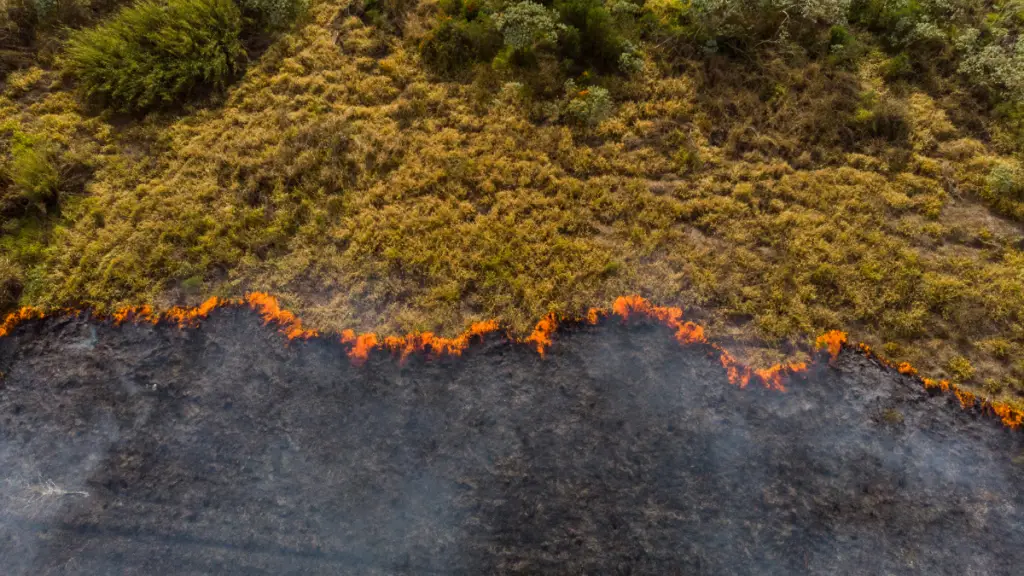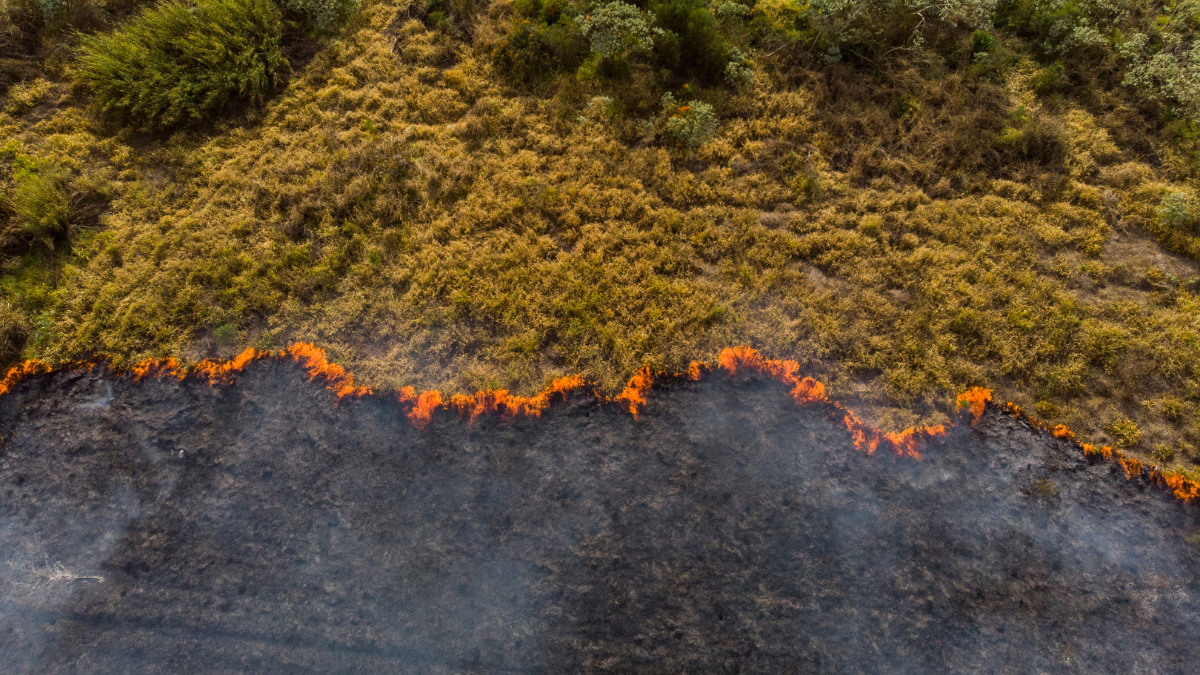Climate change is one of the most pressing issues facing the world today, particularly in Africa where it poses a major threat to its development aspirations. As a rapidly warming continent with vulnerable coastlines and economies dependent on climate-sensitive sectors, Africa’s climate is experiencing pronounced changes at a rate far greater than the global average which, the continent at significant climate risks. It poses significant threats to human health and safety, food and water security, socio-economic development, and environmental sustainability.
Africa is particularly vulnerable to the effects of climate change due to its high dependence on natural resources, low adaptive capacity, and exposure to multiple hazards. This article aims to provide an overview of the current and projected impacts of climate change on key sectors of the African economy and society. As well as the policy and adaptation challenges that need to be addressed.
Impacts of Climate Change on Key Sectors
Agricultural Sector:
Agriculture is the backbone of many African economies, providing livelihoods for about 60% of the population. And contributing about 15% of the continent’s GDP1. However, agriculture is also highly sensitive to, variability and change. As it depends on rainfall, temperature, soil quality, pest and disease dynamics. As the rainfall amounts and patterns are shifting, marked by increasing aridity in the Sahel and droughts intensifying across the south, coastal regions encountering sea level rise, storm surges and erosion, climate change is expected to reduce crop yields, increase crop failures, alter cropping patterns, and increase food insecurity and malnutrition in Africa.
In particular, some of the impacts of climate change on the agricultural sector in Africa include a reduction in soil moisture and water availability for irrigation. This affects both rainfed and irrigated agriculture as a result of reduced rainfall and increased evapotranspiration. Increased temperatures will accelerate crop development and reduce the length of the growing season, affecting crop productivity and quality. Increased frequency and intensity of extreme weather events such as droughts, floods, heat waves, and storms will damage crops, infrastructure, and assets, and disrupt agricultural activities.
The changes in pest and disease distribution and severity will affect crop health and yield; sea level rise and saltwater intrusion will affect coastal agriculture and aquaculture. Therefore, the sector suffers declining yields and recurring crop failures from heat, droughts, and floods. Livestock face higher mortality during extreme events. Fisheries encounter overfishing and ocean acidification.

Water:
Water is essential for human well-being, economic development, and environmental sustainability. However, water resources in Africa are already scarce and unevenly distributed, with about 300 million people lacking access to safe drinking water. Climate change will exacerbate water stress and scarcity in Africa by altering the hydrological cycle and affecting water availability and quality. Some of the impacts include:
- Reduced precipitation and increased evaporation will reduce surface water flows and groundwater recharge, affecting water supply for domestic, agricultural, industrial, and hydropower uses.
- Increased temperatures will increase water demand for irrigation, cooling, and other purposes.
- Increased frequency and intensity of extreme weather events such as droughts, floods, landslides, and storms will affect water infrastructure, services, and management.
- Changes in water quality due to increased sedimentation, erosion, pollution, salinization, eutrophication, and algal blooms will affect human health and aquatic ecosystems.
- Sea level rise and storm surges will increase coastal erosion and flooding, affecting coastal water resources.
Health Sector:
Health is a fundamental human right and a key indicator of development. However, health outcomes in Africa are among the lowest in the world, with high rates of mortality and morbidity from communicable diseases such as malaria, tuberculosis, HIV/AIDS, and diarrheal diseases. Climate change will affect human health in Africa by increasing exposure to heat stress, vector-borne diseases, water-borne diseases, respiratory diseases, malnutrition, and mental stress. Some of the impacts include:
- Increased temperatures will increase heat-related mortality and morbidity, especially among the elderly, children, and people with chronic conditions.
- Changes in rainfall patterns, temperature, and humidity will affect the distribution and transmission of vector-borne diseases such as malaria, dengue fever, yellow fever, and Rift Valley fever.
- Reduced water availability and quality will increase the risk of water-borne diseases such as cholera, typhoid fever, and dysentery.
- Increased air pollution and allergens will affect respiratory health and trigger asthma and allergic reactions.
- Increased frequency and intensity of extreme weather events such as droughts, floods, storms, and wildfires will cause injuries, displacement, trauma, and mental stress.
Policy and Adaptation Strategies
Africa has made progress in developing and implementing policies and strategies to address climate change. This includes the development of regional and national climate change policies, integration of climate change into development plans and budgets, strengthening of institutional capacity, mobilization of financial resources, and implementation of adaptation actions. Efforts are focused on participatory, context-specific, and ecosystem-based approaches, with an emphasis on gender sensitivity and poverty reduction. Partnerships and cooperation at various levels are being fostered to support these initiatives.
Challenges of Policy and Adaptation Strategies
Despite the current policy and adaptation strategies, climate change poses significant challenges in Africa. Some of these challenges include limited data and information on climate change impacts and vulnerability at local and regional scales;
- Low awareness and understanding of climate change risks and opportunities among decision-makers and stakeholders.
- Inadequate institutional and technical capacity for climate change planning and implementation at national and sub-national levels.
- Insufficient financial and human resources for climate change adaptation and mitigation actions.
- Lack of coordination and integration of climate change policies and strategies across sectors and levels of governance.
- Conflicting and competing interests and priorities among different actors and sectors.
- High dependence on external support and assistance for climate change adaptation and mitigation, among others.
Way Forward
Based on the above discussion, here are three of the most effective ways of addressing the issues of climate change in Africa:
Scaling up investment in renewable energy: African governments, investors, and international financial institutions must significantly scale up investment in energy – especially renewable energy – to unlock Africa’s potential as a global low-carbon superpower. A ten-fold increase in power generation is required to provide all Africans with access to electricity by 2030. Renewable energy sources such as solar, wind, hydro, and geothermal can provide clean, affordable, and reliable electricity for millions of people while reducing greenhouse gas emissions and enhancing energy security. Renewable energy can also create jobs, spur innovation, and support economic diversification.
Implementing climate-resilient development strategies: African governments must mainstream and integrate climate change into national and sectoral development plans, policies, and budgets. This means adopting climate-resilient development strategies that aim to reduce poverty, raise productivity, and cut emissions. Such strategies should include measures such as improving water management, promoting climate-smart agriculture, enhancing disaster risk reduction, strengthening social protection, and building adaptive capacity. Climate-resilient development strategies should also be participatory, context-specific, gender-sensitive, pro-poor, and ecosystem-based.
Strengthening regional and international cooperation: African governments must work together to advance their common interests and voice their concerns on the global stage. This means forging a united front and advocating for climate justice and solidarity at the international level. African countries should demand that developed countries have their historical responsibilities and moral obligations to provide adequate finance and support for climate action in Africa. African countries should also seek to enhance regional cooperation and integration on climate issues, such as sharing best practices, harmonizing policies, mobilizing resources, and building partnerships.
Conclusion
Climate change is a reality that affects every aspect of life in Africa. It poses serious threats to human health and safety, food and water security, socio-economic development, and environmental sustainability. However, it also offers opportunities for innovation, transformation, and resilience. Africa has the potential to become a leader in climate action by harnessing its abundant natural and human resources, its rich cultural and ecological diversity, and its strong political will and commitment. To achieve this, Africa needs to adopt a holistic and integrated approach to climate change adaptation and mitigation that is based on sound science, evidence-based policy, inclusive participation, effective coordination, adequate financing, and strategic partnerships.





